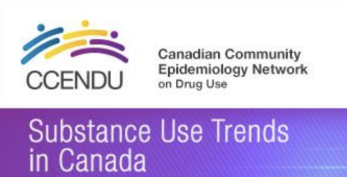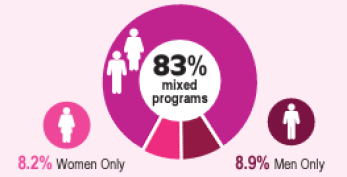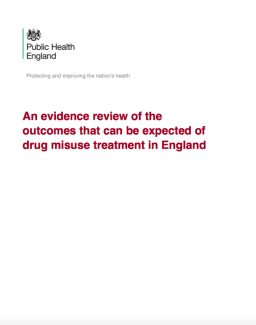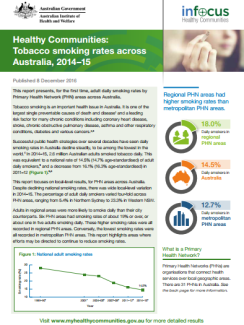Search
Treatment
Applying interventions designed to reduce and manage the symptoms of substance use disorders.
Systemic and Individual Factors in the Buprenorphine Treatment-Seeking Process: A Qualitative Study
Abstract
Background: Opioid use is a significant problem in Alaska. Medication-assisted treatment for opioid use, including buprenorphine, reduces withdrawal symptoms and the harm associated with opioid abuse. Understanding consumers’...
Reviewing England's Drug Misuse Treatment System
Public Health England’s recently published review reveals that the country’s drug misuse treatment system is performing well. However, there are still several areas that call for improvements.
Amongst the report’s findings, notable are:
- ...
Delaying Marijuana Use to Age 17 Is Better for the Teenage Brain
The longer teenagers delay the use of marijuana, the better it is for their developing brains. However, a new study has found that there may be little adverse effect if one starts smoking the drug after the age of 17. According to the...
Plans for a Smoke-Free Finland Gather Pace
Finland plans to cut consumption of tobacco products - in any form – to less than 2% among adults by 2040. As is the case with many industrialised countries, Finland’s smoking rates have decreased in recent years as a result of various...
Carefree Adolescence: A Risky Business
 It is widely accepted that adolescents are predisposed to indulge in risky behaviours, more so than adults. Researchers at the Max Planck Institute for Human Development have recently provided us with new insights into the underlying...
It is widely accepted that adolescents are predisposed to indulge in risky behaviours, more so than adults. Researchers at the Max Planck Institute for Human Development have recently provided us with new insights into the underlying...
New Online Training for Practitioners, Peer Mentors and Service Managers
This new platform allows substance misuse, probation and prison services to upskill their workforces in a scalable and consistent way, and optimise their use of the digital behaviour change programme Breaking Free.
Service providers can...
Free Resource for Evaluating Drug Prevention and Treatment Interventions
The Evaluation Instruments Bank (EIB) is an online database of freely available resources for evaluating drug prevention and treatment programmes and initiatives. You can search the archive by type of intervention (treatment or prevention)...
Tobacco and Cancer: Epidemiology and New Perspectives of Prevention and Monitoring in Mexico
Tobacco smoking is a causal risk factor of at least 16 different types of cancer. In Mexico, smoking causes 6,035 premature deaths annually of lung cancer and 5,154 from other types. Additionally, 16,408 new smoking attributable cases are...
Readiness and Barriers to Adopt Evidence-Based Practices for Substance Abuse Treatment in Mexico
Treating Alcohol Addiction with Positive Relationships
A ‘therapeutic alliance’, or in other words, a positive and trusting relationship between counsellor and patient, could be the key to successful treatment of alcohol addiction, according to a new study. Patients who reported a more positive...
Healthier Alternatives and Natural Highs: The Success of the Icelandic Model
A Sip as a Kid, Alcohol Problems as an Adult?
Introducing children to alcohol by way of their parents allowing them sips or tasters of their own drinks is typically viewed as the presiding method used in European countries.
Published in the journal Psychological Medicine, a new...
Neural Processing, Risky Behaviour and Cocaine Use
According to new research published in the journal Biological Psychiatry: Cognitive Neuro-science and Neuroimaging, compared to people without a drug problem, cocaine addicts tend to make riskier choices after losing out on a potential...
Alcohol Advertising Linked to Youth Drinking
Health researchers worldwide have provided new evidence suggesting that alcohol advertising is often aggressive, reaching children, and is linked with youth drinking.
The Australian organisation, the National Alliance for Action on Alcohol...
Australian Smoking Habits
Smoking is a serious health issue worldwide. Prevalence, however, has steadily declined across Australia over the last several decades thanks to a number of successful public health campaigns. The number of smokers in the country is now...
Are Personality-Targeted Prevention Initiatives Successful?
Research has found that one’s personality is a useful predictor of drug and alcohol abuse. One notable programme that approaches substance prevention by focusing on personal characteristics is PreVenture. PreVenture has already been shown...
Returning from Rehab: What Are The Challenges of Re-Integration?
Residential ‘in-patient’ treatment for substance abuse – more commonly known as ‘rehab’ - is the favoured option among those wanting to recover from addiction.
The rate of relapse within the first year following being discharged, however...
Are People Smoking Less and Less?
According to new findings published in the journal Tobacco Control, more than 53 million people in 88 countries have stopped smoking between 2008 – 2014 because of tobacco control measures.
Statistically, this means that during the 4-year...
EMCDDA Updates on Best Practice
A new European Monitoring Centre for Drugs and Drug Addiction (EMCDDA) Best Practice report will be published in early 2017. It will take an in-depth look at substance use prevention in Europe.
The report's stated aim is "not to rate...
New Online Resource on E-Cigarettes
The National Center on Addiction and Substance Abuse (CASA) has recently launched an engaging online resource on e-cigarettes. The free resource aims to offer parents and caregivers easily accessible information about e-cigarettes and other...
Share the Knowledge: ISSUP members can post in the Knowledge Share – Sign in or become a member








